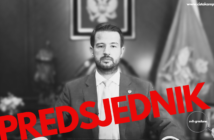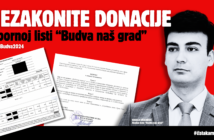Elections
In 2014 we participated in development of election-related legislation and monitored local elections held in 12 municipalities.
We conducted comprehensive analyses of election legislation, primarily regarding political party financing and voter registration, as well as its implementation. We collected best practices from several countries and provided nearly 130 concrete proposals in two policy briefs that were distributed to all stakeholders.
In order to stimulate dialogue on the best solutions, we organized a Conference that brought together all stakeholders including high level officials from the Parliament and a round table dedicated to political party financing.
We participated in a Parliamentarian working group that developed new laws and closely cooperated with foreign experts and representatives of international community.
Our representatives also presented those recommendations at the sessions of two Parliament’s committees. Finally, the Parliament adopted amended laws that incorporated majority of our recommendations.
We conducted an awareness raising campaign on the importance of accurate Voter Registry and promoted mechanisms for reporting violations of election-related legislation.
We published nearly 200 press releases and paid media advertisements, and we disseminated a variety of printed materials through 50 info corners in 12 municipalities. We developed a special web site www.izbori.se to present information on elections.
The campaign was also present on social networks, predominately Facebook and Twitter, hitting over 12.000 social networks friends and followers, just in the first wave (shares and re-tweets not included).
MANS developed a secure online platform and android application for reporting election-related irregularities www.prijavikorupciju.me.
Over 370 citizens reported concrete cases to MANS, which we further investigated and submitted nearly 80 criminal complaints and initiatives to responsible institutions.
We monitored public expenditures of 300 institutions prior to the elections. In order to obtain information we submitted over 14.000 freedom of information requests, nearly 6.000 complaints and appeals. Throughout the year we obtained about one third of all requested information.
Based on the information provided from citizens and documents obtained from institutions we developed and published more than 50 investigative stories, each dealing with a particular case of political corruption.
We analyzed collected information and submitted over 100 initiatives to the prosecutor’s office and other responsible institutions. In addition we submitted two initiatives for control hearings before relevant Parliament’s committees.
One was revised by the Committee but no concrete decisions were made, while discussion on the second initiative was obstructed by representatives of the major governing party.
Over 150 MANS volunteers conducted field validation of over 8,000 entries in the voters’ lists following special training.
On the basis of their findings and analysis of voter registries in the last ten years and other available information, we submitted over 9.000 initiatives to the Ministry of Interior.
The Ministry did not act upon the initiatives; therefore we submitted cases to the Administrative Court and the Supreme Court that ruled in our favor.
MANS endorsed the Declaration of Global Principles with internationally recognized norms and standards for organizations monitoring elections and became a member of the Global Network of Domestic Election Monitors.
Following our public advertisement and distribution of awareness raising materials, over 1.600 citizens expressed interest in observing elections in the capitol city, Podgorica.
We provided these volunteers with three types of trainings and selected the best volunteers to observe the Election Day.
Our 550 observers conducted a pilot monitoring of the voting process at 197 polling stations where over 90% citizens of Podgorica have the right to vote.
They monitored all the stages of the election process, including preparation and opening of the polling stations, voting process, voting by letter, closure of the polling stations and counting of ballots, and determining the results of voting in the polling stations.
For the first time in Montenegro one NGO monitored elections in prison as well as voting by letter procedure implementation.
The observers identified, documented and reported 840 concrete violations. We submitted all these cases to responsible election commissions, but all of them were rejected by all responsible institutions.
We developed a bilingual report on the Implementation of Electoral Legislation composed of three main components: Election Day, Voters’ Lists and Political Party Financing and Misuses of Public Funds and Office.
In addition, we produced a short documentary with our observers describing the main irregularities they witnessed.
The report and the documentary were distributed to over 4.100 stakeholders and to general public through press conferences and press releases.
Following the elections we organized a round table where all stakeholders discussed concrete shortcomings in the electoral legislation and obstacles in its implementation.
Following the elections we again participated in the Parliament’s working group that developed a new law regulating election financing.
Finally, the European Commission in its latest Progress Report on Montenegro called for institutions to investigate election irregularities and requested proper implementation of election regulations.
Following the elections, MANS was under enormous pressure of the largest political party and affiliated media.
One tabloid conducted a smear campaign against MANS Executive Director with 51 cover pages published in several months.
The campaign was condemned by many institutions, almost all political parties, international organizations, embassies and NGOs.
The Parliament of Montenegro condemned the campaign and initiated changes of the Law on Media.
The Ombudsman claimed it represents violation of human rights, while the court forbade distribution of 16 articles judging they offend public morale and violate human rights.
Representatives of the European Parliament, Delegation of the European Commission in Montenegro, the Council of Europe, the Organization for Security and Cooperation in Europe, the US Embassy in Montenegro and the United Nations condemned the smear campaign.
Open Government Partnership International Expert Panel, Transparency International, Article 19, Access Info Europe, Civil Rights Defenders and many other international organizations also reacted.
Local Trade Union of Journalists, the Journalists Regulatory Body, but also the Independent Association of Journalists of Serbia, the Center for Investigative Reporting in Serbia and the Organized Crime and Corruption Reporting Project condemned the attack, stating it is violation of ethical codes of journalists.
Many local and NGOs from the region condemned the campaign asking the government to protect civil rights activists.
Policies against Corruption & Organized Crime
Throughout 2014 MANS monitored implementation of the Action Plan for fight Against Corruption and Organized Crime and the action plans for Chapters 23 and 24.
We also participated in public debates on revision of action plans for Chapters 23 and 24 and provided 38 proposals for improvements of reforms planned by these documents.
MANS’ representatives participated in the National Commission responsible for implementation of the Action Plan. Following our initiative, the National Commission discussed the European Commission Progress Report on Montenegro for 2013 and our proposals for improvements.
MANS participated in the working group for development of the Law on Prevention of Corruption. We submitted several sets of comments during the drafting procedure and most of them were adopted.
However, the Government changed the version developed by the working group and we submitted amendments to the law to the Parliament.
We also provided comments to four other anti-corruption laws to the Government[1].
During 2014 MANS was engaged in the research of the Government’s Defense Anti-Corruption Index, which is the first time that such research was conducted in Montenegro. Results of this research will be published in 2015.
We also started research of the National Integrity System with the Transparency International. This research includes analysis of legislative and institutional framework of state institutions, as well how provisions of laws and other acts are implemented in practice.
Representatives of all three branches of power participated at our National Conference, together with foreign experts, including the famous undercover Federal Bureau for Investigations’ agent and former German General Prosecutor.



